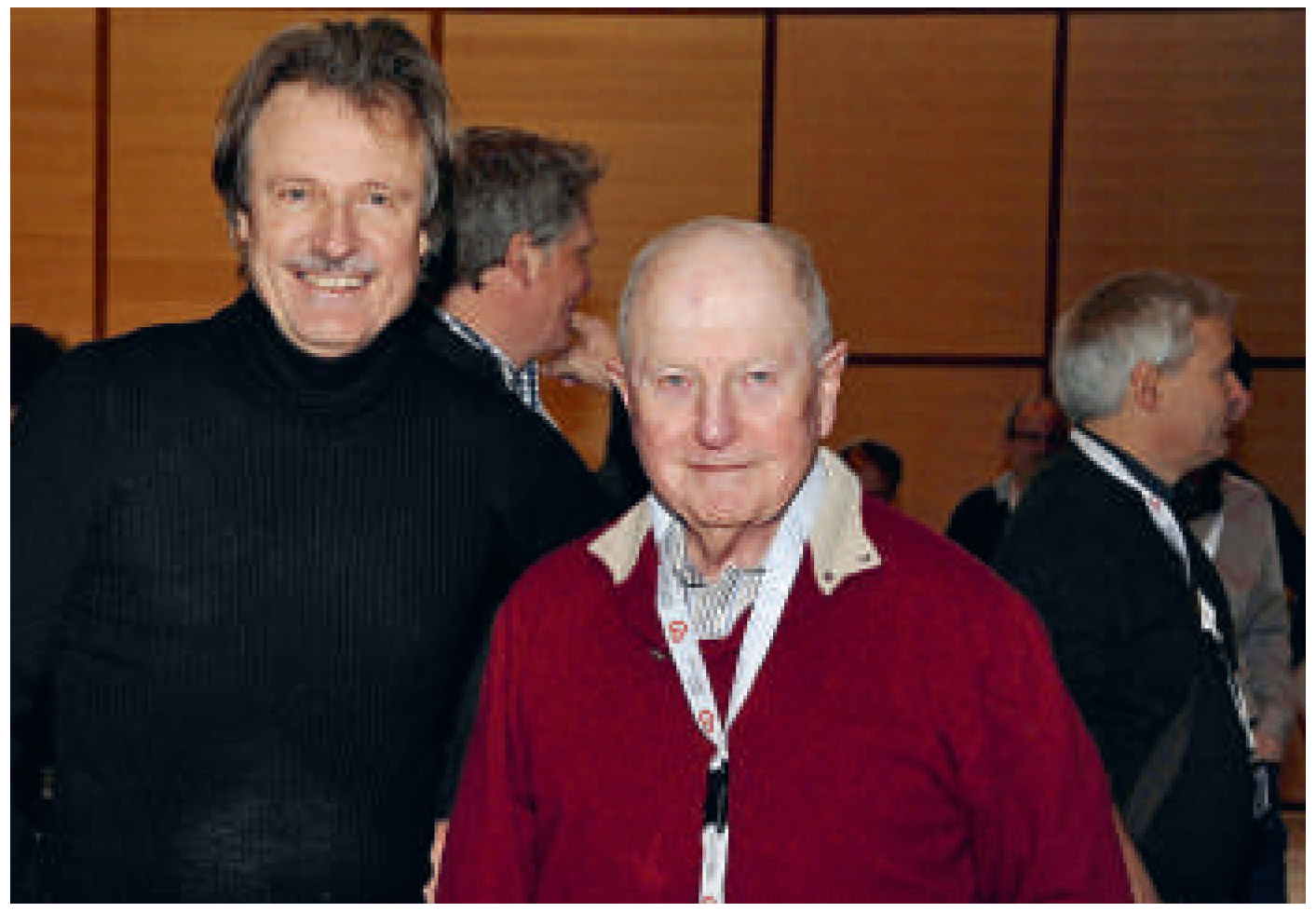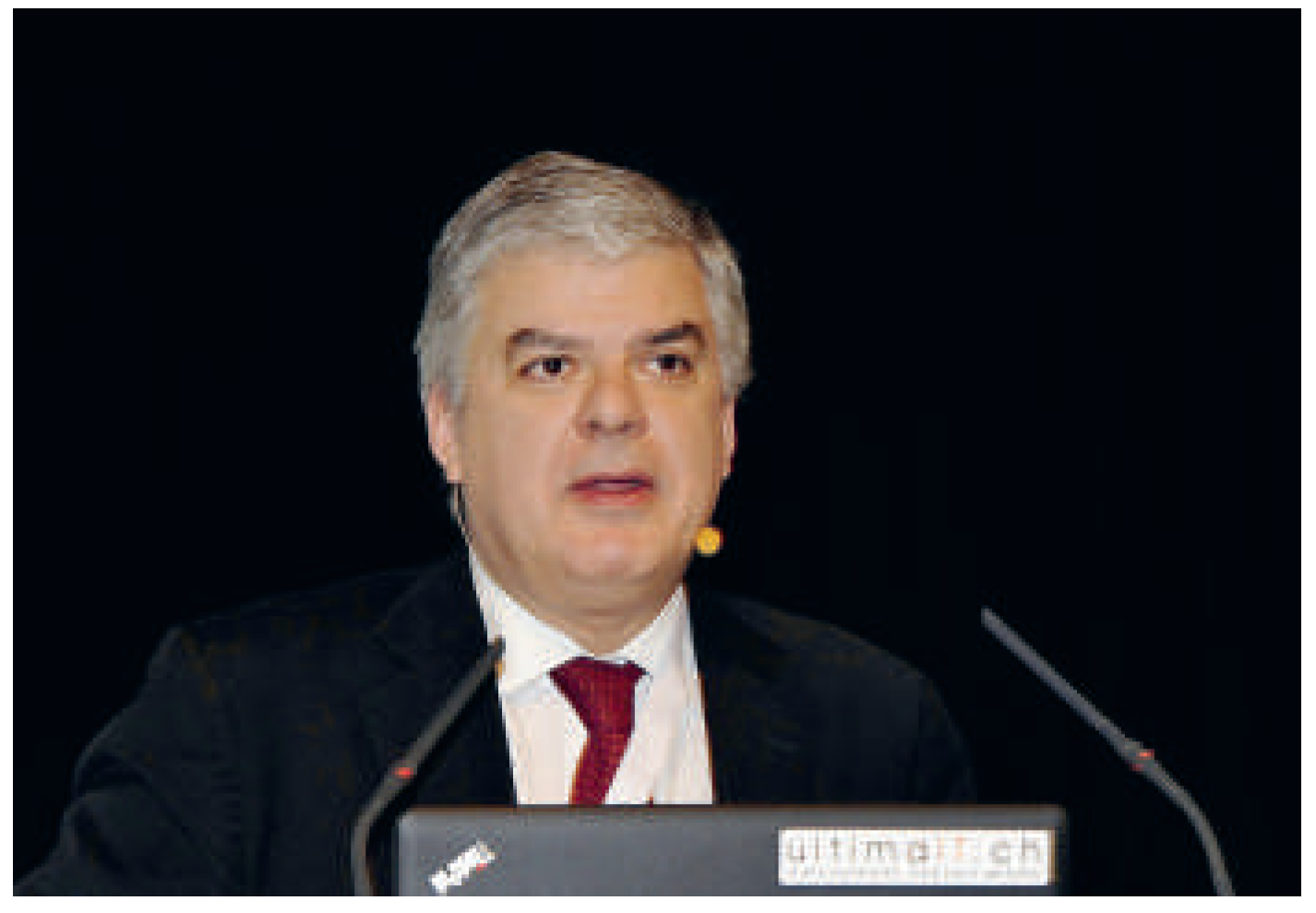Shortly after the World Economic Forum, the 21st Postgraduate Course in Cardiovascular Disease, the Cardiology Update 2015 was held at the Congress Centre in Davos from February 8–12, 2015.
This year’s Cardiology Update was organised by the Zurich Heart House in collaboration with the University Heart Centre of the University Hospital Zurich in partnership with the Brigham and Women’s Hospital of Harvard Medical School. This postgraduate course has a long tradition; indeed, Bertram Pitt from Ann Arbor, MI, USA (
Figure 1, right) started the tradition in 1975 together with the late Paul R. Lichtlen, at the time Professor of Cardiology at the Hanover Medical School. Since 1995, Thomas F. Lüscher from the University of Zurich (
Figure 1, left) has been responsible for the course that is accredited by EBAC (the European Board of Accreditation in Cardiology), the Swiss Society of Cardiology, the German Society of Cardiology and the European Society of Cardiology.
The Cardiology Update 2015 was shortened to four days of teaching, with lectures, interactive sessions, case-based seminars and meet-the-expert sessions lasting from 8 a.m. to 8 p.m. daily. The faculty comprised 65 members from all over the world, including the most important key opinion leaders in cardiology as well as 24 local faculty members from the University Hospital Zurich. Overall, around 500 physicians attended the course at the Congress Center Davos (
Figure 2).
The course was opened by the current President of the European Society of Cardiology, Fausto Pinto from Lisbon (
Figure 3) and the scientific programme started with the traditional Paul Lichtlen lecture on “Social value and meaningful outcomes in clinical trials research” by Prof. Stuart Pocock from the London School of Hygiene and Tropical Medicine (
Figure 4). Prof. Pocock pointed out that clinical trials should be designed to answer meaningful questions relevant to clinical practice as well as the society at large and analyzed for the participants numerous trials published over the past years in this regard. The scientific programme included sessions on atherosclerosis and genetics as well as traditional and novel risk factors, involving eminent scientists such as Peter Libby from Boston, John Deanfield from London and Salim Yussuf from Hamilton, Ontario. Besides the European Society of Cardiology guidelines on various parts of the subjects, novel evidence and treatment options were discussed. The programme went on to discuss stable coronary artery disease and cardiac imaging, as well as thrombosis and pulmonary embolism, with lectures by many key opinion leaders and practical seminars allowing for in-depth discussion of the subjects. The third day focused on atrial fibrillation and percutaneous interventions, as well as acute coronary syndromes. On the fourth day the focus was on acute and chronic heart failure.
The course ended with the traditional Davos lecture and a brilliant presentation by Marc A. Pfeffer from Harvard Medical School in Boston on “Ventricular remodelling: a personal journey”. Thus, the Cardiology Update 2015 again provided a true update in all areas of cardiovascular medicine by internationally renowned faculty members, and was highly appreciated by the participants.






